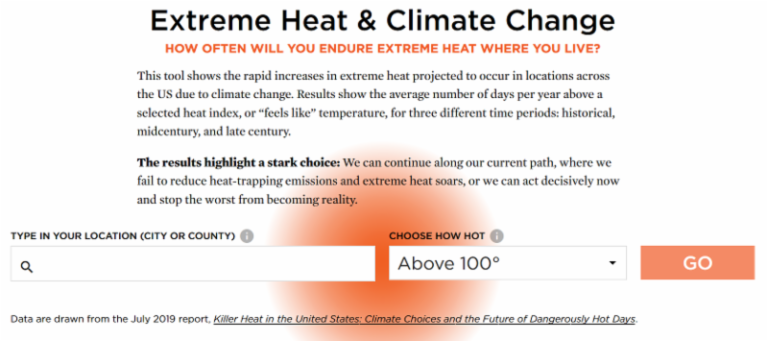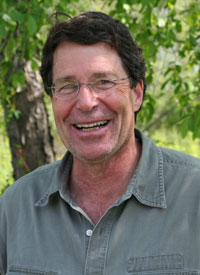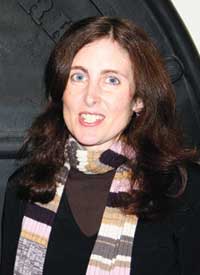Killer Heat in the United States_ Climate Choices and the Future of Dangerously Hot Days from Security & Sustainability Forum on Vimeo.
Aired originally on 9/9/2019
The United States is facing a potentially staggering expansion of dangerous heat over the coming decades. This Union of Concerned Scientists analysis, Killer Heat in the United States: The Future of Dangerously Hot Days, shows the rapid, widespread increases in extreme heat that are projected to occur across the country due to climate change, including conditions so extreme that a heat index cannot be measured. The analysis also finds that the intensity of the coming heat depends heavily on how quickly we act now to reduce heat-trapping emissions.

The report includes a tool where you can compare the temperature impacts of climate changing your community in the United States under a number of scenarios. If we don’t change the current GHG emissions trajectory, Washington, DC, where I reside, will see 100-degree days jump from 5 to 37 by midcentury with 20 days over 105 degrees. That is a wake-up call if I ever heard one to take bold action now to dramatically reduce emissions and prevent the worst from becoming reality. Watch SSF and UCS scientists and report authors Dr. Rachel Licker, Senior Climate Scientist, and Dr. Rachel Cleetus, UCS Policy Director in a review of the report methodology, projections, and concepts for adaptation.
Meet the Panelists

Rachel Licker is a senior climate scientist with the Climate & Energy Program at the Union of Concerned Scientists and coauthor of “Killer Heat”. In her role, Dr. Licker communicates climate science to policymakers, the public, and the media. She analyzes new developments in climate science and works to defend climate science budgets and programs.
Rachel Cleetus is the policy director with the Climate and Energy program at the Union of Concerned Scientists and a coauthor of “Killer Heat”. She leads the program’s efforts in designing effective and equitable policies to address climate change, and advocating for their implementation.


Michael Simpson
Michael is Co-Director, Center for Climate Preparedness and Community Resilience and Chair, Environmental Studies Department at Antioch University New England. Much of his research has been funded by NOAA and the US EPA to work with local stakeholders to identify potential risks from projected climate and land-use change, followed by developing an adaptation strategy for communities to build for projected impacts.
Abigail Abash Walton, Moderator
Abigail Abrash Walton, PhD, is co-director of Antioch’s Center for Climate Preparedness and Community Resilience. She is also faculty in the Department of Environmental Studies, where she directs the Master’s of Science programs.

